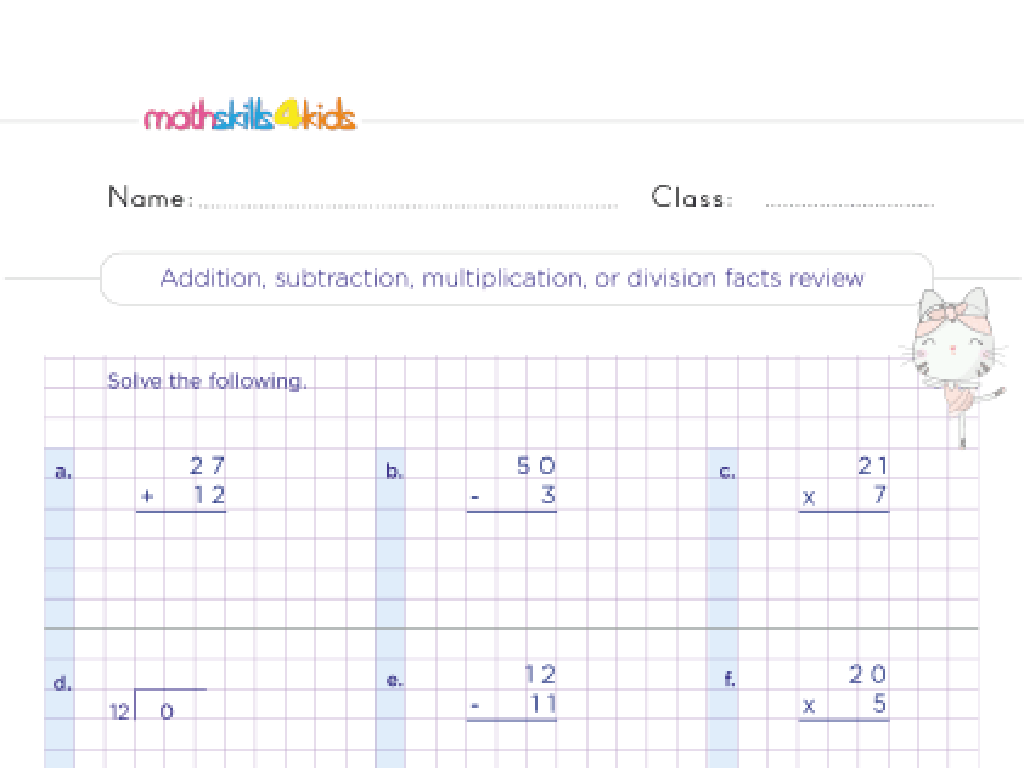Use Greek And Latin Roots As Clues To The Meanings Of Words
Subject: Language arts
Grade: Third grade
Topic: Greek And Latin Roots
Please LOG IN to download the presentation. Access is available to registered users only.
View More Content
Word Detectives: Greek and Latin Roots
– Welcome young detectives!
– Today’s mission: Greek & Latin roots
– Discover the ancient pieces of English words
– Words have building blocks
– Roots are word parts that hold the basic meaning
– Become a word builder
– Use roots to decode and construct words
|
Begin the class with an enthusiastic welcome to set the stage for an adventure in learning. Explain that just like detectives look for clues to solve mysteries, we can become word detectives to uncover the meanings of words. Introduce Greek and Latin roots as the building blocks or ‘clues’ that can help us understand and build a vast array of English words. Emphasize that many English words are derived from these ancient languages, and knowing the roots can help students decode unfamiliar words. Engage the class by asking them to think of words they know and see if they can identify any roots. This will prepare them for the activities ahead where they will practice using roots to determine word meanings.
Unlocking Word Meanings with Roots
– Roots: the word’s foundation
– Like a plant’s root, it’s the base part of a word that holds the main meaning.
– Greek & Latin roots in English
– Many English words are made from Greek and Latin roots.
– Roots guide to word meanings
– Knowing roots helps us guess new words’ meanings.
– Practice with common roots
– We’ll learn some common roots and try them out.
|
This slide introduces the concept of roots in language arts, focusing on Greek and Latin origins. Roots are the fundamental part of words that carry the core meaning, similar to how roots of a plant are essential for its growth. By understanding common Greek and Latin roots, students can begin to decipher the meaning of new or unfamiliar words, enhancing their vocabulary and reading comprehension skills. In the next class, we will explore some common roots and practice applying this knowledge to understand new words. Prepare interactive activities where students match roots to their meanings and use them to build new words.
The Power of Roots: Unlocking Word Meanings
– Roots reveal word meanings
– Like ‘bio’ means life in ‘biology’, the study of life
– Aid in spelling and pronunciation
– Understanding ‘phon’ helps spell and say ‘telephone’ correctly
– Expand our vocabulary
– Learning ‘graph’ helps us know ‘autograph’ and ‘photograph’
|
This slide introduces the concept of Greek and Latin roots and their importance in understanding the English language. Roots are the building blocks of many words, and by learning them, students can decipher the meaning of unfamiliar words, improve their spelling and pronunciation, and significantly increase their vocabulary. For example, the Greek root ‘bio’ means life, which is the foundation for words like ‘biology’ (the study of life). Similarly, ‘phon’ relates to sound, aiding in the spelling and pronunciation of words like ‘telephone.’ Encourage students to become word detectives, looking for roots to solve the mysteries of word meanings. Provide additional examples and engage the class in identifying roots in words they already know.
Exploring Greek Roots: ‘bio’ and ‘geo’
– ‘bio’ means life
– Biology is the study of life
– ‘geo’ means earth
– Geography is the study of Earth
– Examples: biology, geography
– Find words with ‘bio’ or ‘geo’
– Can you find other words like biography or geology?
|
This slide introduces students to the concept of Greek roots in English words, focusing on ‘bio’ and ‘geo’. Start by explaining that many English words are made up of parts that come from Greek language, and these parts, called roots, can give us clues about the word’s meaning. Provide examples like ‘biology’ (the study of life) and ‘geography’ (the study of Earth). Encourage students to think of other words that might contain these roots. This activity will help them understand how knowing roots can help them figure out the meanings of new words. For the next class, students could bring a list of words they’ve found that include the roots ‘bio’ or ‘geo’.
Exploring Words with Latin Roots
– ‘spect’ means to look
– e.g., ‘spectator’ means a person who looks
– ‘port’ means to carry
– e.g., ‘transport’ means to carry things from place to place
– Find words with ‘spect’
– Discover words with ‘port’
|
This slide introduces students to the concept of Latin roots in English words, focusing on ‘spect’ and ‘port’. Begin by explaining that many English words are derived from Latin roots, which can help us guess the meaning of new words. Use ‘spectator’ as an example to show that it refers to someone who looks at an event, and ‘transport’ to explain that it involves carrying goods or people from one place to another. Encourage students to think of other words that might use these roots, such as ‘inspect’ (to look into) or ‘export’ (to carry out). This activity will help students expand their vocabulary by understanding the building blocks of words.
Unlocking Word Secrets with Greek and Latin Roots
– Roots give clues to word meanings
– Like ‘bio’ means life in ‘biology’
– Mix roots with prefixes and suffixes
– ‘Un’ (not) + ‘happy’ makes ‘unhappy’
– Practice with ‘teleport’
– ‘Tele’ means far, ‘port’ means carry
– Become a word detective!
|
This slide introduces students to the concept of using Greek and Latin roots to decipher the meanings of new words. By understanding common roots, students can become word detectives, piecing together the meanings of unfamiliar words. For example, ‘bio’ is a Greek root meaning ‘life,’ which we see in words like ‘biology.’ Encourage students to think of roots as puzzle pieces that can be combined with prefixes and suffixes to form new words. Use ‘teleport’ as a practice word, breaking it down into ‘tele’ (far) and ‘port’ (carry) to show how roots help us understand that ‘teleport’ means ‘to carry far.’ This activity will help students build their vocabulary and reading comprehension skills.
Class Activity: Create Your Root Word Tree!
– Learn about Greek & Latin roots
– Choose a root for your tree
– Pick a root like ‘tele’ (far) or ‘bio’ (life)
– Add branches with related words
– For ‘tele’, branches could be ‘telephone’, ‘telescope’
– Decorate and label your tree
– Use colors or pictures to show the meanings
|
This activity is designed to help students understand the concept of word roots and how many words are derived from these roots. Start by explaining what Greek and Latin roots are and why they’re important. Then, instruct students to choose one root and research words that stem from it. They will draw a tree, with the root at the base and branches that represent the words coming from that root. Encourage creativity in the way they present their tree, using colors, images, or even real leaves to decorate. Provide examples like ‘tele’ which can lead to words like ‘television’, ‘telegraph’, ‘telephone’, and ‘telescope’. This visual representation will help solidify their understanding of word formation and the influence of Greek and Latin roots in English.
Wrapping Up: Greek and Latin Roots
– Why roots matter
– Roots help us guess word meanings
– Reviewing our root words
– ‘bio’ means life, ‘geo’ means earth
– Example words recap
– ‘biography’, ‘biology’, ‘geography’
– Time for questions!
|
As we conclude today’s lesson, it’s important to remind students why understanding Greek and Latin roots is valuable. It helps them to decode unfamiliar words and expand their vocabulary. Go over the roots we’ve learned, such as ‘bio’ for life and ‘geo’ for earth, and revisit the example words like ‘biography’, ‘biology’, and ‘geography’. Encourage students to think of other words they know that might contain these roots. Finally, open the floor for any questions, ensuring that students feel comfortable with the material and clarifying any confusion before the lesson ends.
Homework Challenge: Root Word Detectives
– Find words with Greek/Latin roots
– Write the root of each word
– ‘tele’ in telephone, ‘graph’ in photograph
– Guess the meaning based on the root
– If ‘tele’ means far, what could telephone mean?
– Get ready to share in class
|
This homework task is designed to help students recognize and understand the influence of Greek and Latin roots on the English language. By identifying the roots in words, students can begin to piece together meanings, enhancing their vocabulary. Encourage them to use a dictionary or the internet to look up the roots if they’re unsure. In the next class, create a collaborative environment where students can discuss their findings and learn from each other. This activity will not only build their vocabulary but also their critical thinking and research skills.






